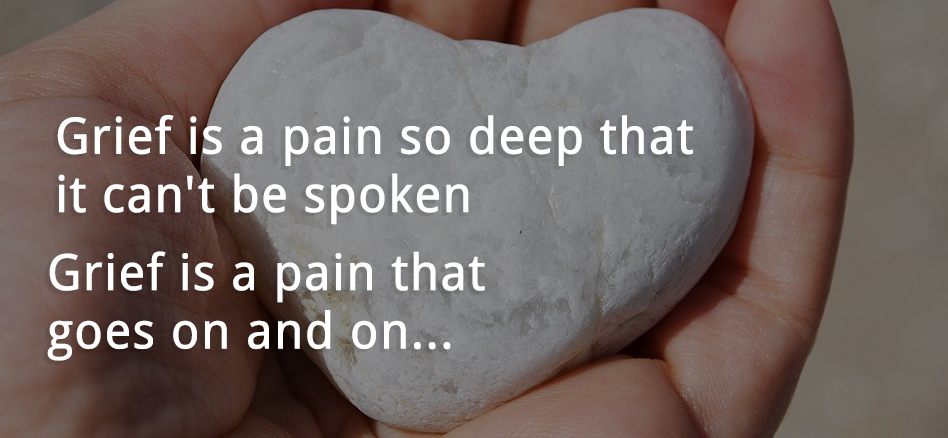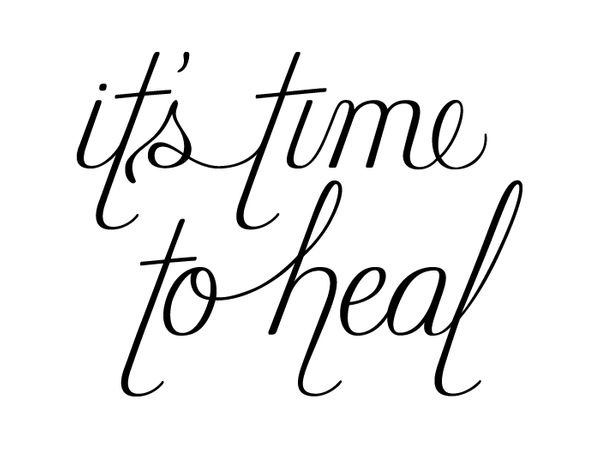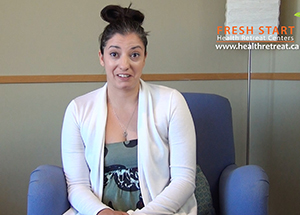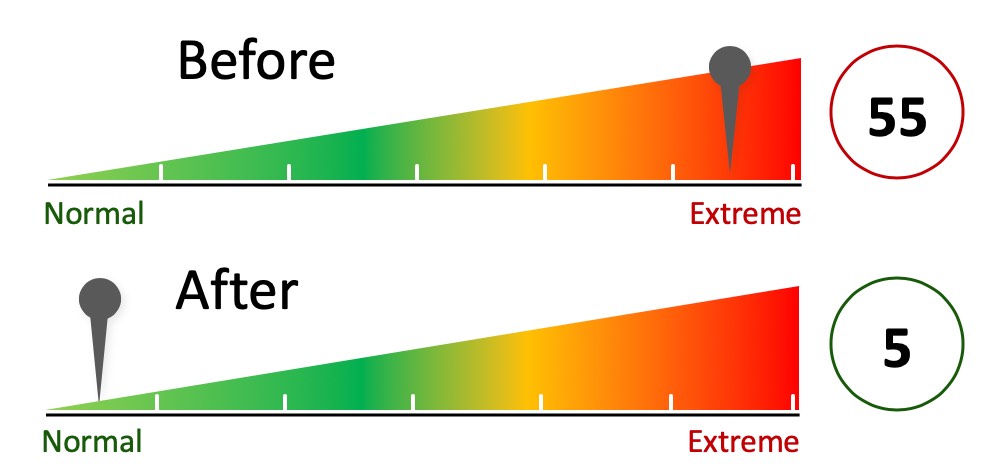
We experience losses from the moment we are born when an umbilical cord is cut from us. If it is done by a professionally trained doula who understands what the mother and child are going through, it makes it so much easier for both to go through the experience. But it is rarely the case. As we grow up, the level of severity of losses is only getting stronger. And unless we have support around us, at times, it gets very challenging to get through.
Schools have introduced counsellors to help children grieve over the most recent loss of mom and dad, who have had just divorced. When we get older, and our parents are in their late years, it immensely hurts us to see them getting older and pass away. And then there is devastating pain when you lose someone unexpectedly.
Those losses create deep voids in our hearts, as often we have lots of memories together. But the biggest pain is that constant feeling that is deep inside that comes out every time you see the shirt that your husband, who has committed suicide, was wearing the night before when you had a big fight. Or when you walk into a local restaurant, where you had a meal together with your friend, after which she had a fatal car crash. Grief is a heavy burden on your heart that is so hard to bear and is about knowing that you cannot change “it” and cannot go back in time but in your dreams.
Those wounds create deep rifts in our hearts. Some people end up on anti-depressants to numb the pain; others try to shut down their feelings by succumbing to alcohol or marijuana to just run from the pain. But the wound is still there. And from time to time, this wound resurfaces, flares up and does not really allow you to pick up the same speed and to enjoy life the same way as before.
Stages of grief

Grief is a healing process unique to each person. Some people may cry all the time, while others will not shed a tear for a while. But you should not feel guilty for feeling or not feeling, as well as for needing time or for someone becoming uncomfortable around you.
Grief is a transformation process that takes a broken, wounded soul that no longer wants to get up in the morning and cannot find the reason for living onto a journey of the deepest self-discovery and life inventory.
Most people experiencing loss go through the following grief stages:
1. Denial – you attempt to pretend that the loss does not exist, do not believe that it is happening TO or WITH YOU. You are trying to absorb and understand what is happening.
Associated feelings: numbness, shock, disbelief, strength, toughness, overachieving, trying to stay constantly active.
2. Anger – this feeling tends to be the first one that a person starts releasing after loss, as it does not require him/her to become vulnerable and to admit fears.
Feelings: agitation, betrayal, impatience, feeling angry with God, blaming others, desire to get forgiveness/ reconcile, being aggressive, getting into more arguments.
3. Bargaining – promises to turn around or change one’s life if the person who is gone is given a chance to continue living. It is a realization that you cannot change things, and many people direct their attention to a higher power.
Feelings: At this stage, it is common to experience guilt and to resort to an irrational belief that if the situation played differently, you would not be in such a painful place, that you could have warned him/her, listened to your intuition, haven’t said this and that triggering him/her, could have picked a different route etc. You also may be seeking approval and reassurance from others, wanting more attention or affection. You also may be believing that you are responsible for loss or questioning religious beliefs.
4. Depression – you are facing reality, panic begins subsiding, the emotional fog starts clearing, and the loss feels more present and unavoidable. This stage may be very isolating, as a person tends to turn inward.
Feelings: apathy, fear, helplessness, hopelessness, sadness, despair, emptiness, self-destructive thoughts, questioning a reason to go on living, feeling like you don’t belong, pulling away from other’s attempts to touch and comfort you, crying a lot, not caring about things, loneliness, dropping out of social activities.
Physical and Mental Health Issues
In addition to feelings, you may experience various mental and physical symptoms, such as difficulty concentrating and making decisions, insomnia or sleeping too much, nightmares, changes in appetite, and being easily shaken by certain sites and sounds.
5. Acceptance – a person does not resist the reality of the situation, nor pretends it did not happen, nor tries to make it something different.
Feelings: It may be difficult in the initial stages of grief to even think that one might accept a situation that has happened or even find anything positive about it. Acceptance does not mean that sadness or regret are completely gone, but that there is a sense of acceptance of the reality, inner peace, gratitude and connectedness to the person who died, to a higher power, to other people and to oneself, and to a renewed sense of having a purpose in life.
The acceptance stage may happen or not happen, It can take months, years or decades. There is no timeline or rules for when it happens. However, acceptance is the only healthy resolution of grief. Only through regaining inner peace and a sense of purpose, the person will be able to save the integrity of his/her nervous system, start enjoying life again and live it to the fullest. Love, joy, faith and hope need to be reignited in your heart to see the light and be the light again.
Living alongside of a new reality: Honouring Life, After

We haven’t met a single person who was going through grief without excruciating pain. But we’ve seen that those who were able to integrate the pain and made it part of their journey started experiencing a sense of openness, gratitude and even deeper connection, love and peace. Those positive emotions soothed their pain and helped them reconnect with those they’ve lost and with those beside them even on a deeper level than before.
“Your body is away from me,
but there is a window open
from my heart to yours.
From this window, like the moon
I keep sending news secretly.”
Rumi (title unknown)

“You gave me a forever within the numbered days, and I’m grateful.”
John Green, The Fault in Our Stars
This is Love, writing Home
“I am a daughter, seeking her beloved.
I am a sister, grieving her brother.
I am the wolf, howling at the moon.
I am a soul, communing with its truth.
Wherever I came from
and wherever I am going —
that is Home.”
“There’s no end to my grief journey because there’s no end to my love for you.”
J.S. Golubich
Grief Affects More than Emotions
Grief changes one’s life and reality. Life after losing a loved one isn’t the same. It may affect you not just emotionally but on a practical level, too. Where are you going to live? How are you going to pay the bills? What are you going to do with the estate, moving, packing and giving away life-long belongings? How are you going to manage business and life on your own? How do you get back to work, meet deadlines, and stay focused and productive while responding to condolences and looks of pity on you? It is the most inconvenient time to think about all those things, but it is the time when you have to deal with them, including those areas where you rely on another person.
Some people also may be dealing with relatives who are upset and blame them for what happened. You may experience social pressure to move on even minutes or hours after the death. Some family members may not understand your grieving process or want you to be over it soon so that they can have more of your love and attention, have you back happy and live a ‘normal’ life again. This may put you in a state of guilt and regret. You may feel very lonely on this journey. Do not hold it against those people, as they usually do not want to hurt you and are dealing with their pain, too. But you need to trust that you’ll come out on the other side, like a butterfly from a cocoon. Believe in tomorrow and look for enjoyment in the small things around you.
Grief and Sex Life

For a person who just lost a partner, there is another reality as sexual needs and pressure start building up. Frequently, one will either feel guilty about it or impulsively start searching for how to satisfy those needs instantly. Though most psychologists suggest you wait with sex and new relationships as long as possible, how fast you start looking for a partner, be it a short-term or long-term relationship, is a personal choice. But you need to be aware that every aspect of your life may be affected by grief, including your sex life.
You need to be prepared that your wound may show up at any moment: you may feel emptiness, disconnection, break out into tears, or go through various reactions.
If you do decide to have sex during an acute grief state, you need to be mindful of being present with the person emotionally. You may have a hard time trying to avoid constantly going back to the times with your partner who passed away or tend to tune out from the present moment, which may negatively affect both your sex partner and your experience.
You also need to be very clear and open about your needs and intentions to avoid further trauma, as some people may be looking for long-term relationships, and others may not.
Sex and Energetics
Whenever we are attracted to another person, it happens based on one of the two principles: attraction by core values or attraction by trauma. When we feel whole and healthy emotionally, we are attracted by the 1st principle, if we are broken and unwell – by the 2nd one. This is why often those who are grieving over the loss of a spouse may get attracted to other widowers. It is important to distinguish between the true attraction to the individual and attraction by pain.
Another important aspect: when we are intimate with another person, especially during sex, we connect with each other on an energetic level, where our auras penetrate each other. We exchange our energies, positive and negative. Sometimes, you may find yourself, after sex, starting exhibiting certain behaviours and experiencing some feelings that are not natural to you. The reason is that this may not necessarily be your emotions and feelings but those of another person. When you are full of pain and are drawn to connect with someone alike, you may feel even deeper pain afterwards. While there are ways to cleanse your aura and energetic bodies from negativity brought by other people, you need to be aware of these interactions.
Why not just move on with life? Why do you need to take time to heal?
“We think we want to avoid the grief, but really it is the pain of the loss we want to avoid.
Grief is the healing process that ultimately brings us comfort in our pain.
That pain and our love are forever connected.
To avoid the pain of loss would be to avoid the love and the life we shared.
To deny that loss is to deny the love.”
Unresolved, or incomplete grief does not let you experience love, faith and hope. Those energies are 3 most essential energies for your soul’s health and its very existence.

We are not just our bodies, we are timeless souls. Negative emotions lay heavy on our chest, they make our hearts (=souls) heavy. That pain may destroy lives and peace as much as the loss of a loved one, and accumulatively, it may do more harm. By understanding the circle of life and that we are part of it ourselves helps us look at the past in a broader context and to realize that our life today is a precious gift that our loved ones would like us to enjoy.
Consequences of Incomplete Grief
An incomplete process of grieving may lead to some serious long-term consequences:
- Irritability and anger – these may push other people away.
- Continuing missing the person, you may wither away – though it is normal to experience a deep sense of loss during the grieving process, at times, a person cannot let go of the pain associated with it for years. This may keep you stuck in the past identity, preventing you from creating new chapters of life.
- Fear of loss – life may seem more fragile, and the world may be an unsafe and unstable place. As a result, you may continue moving into the future with anxiety, walking through life with fear and expectation of the worst to happen.
- Falling into coping behaviours – such as smoking, drinking and overeating.
- Apathy, numbness and low-grade depression – these may lead to a lack of energy, drive and motivation.
The incomplete grief may affect a person’s present and future life, as well as his/her ability to enjoy life, connect with others and be available to others. It may make the person embody grief and identify with it for a lifetime, affecting those who care, love, and are there with you and for you. This is how it was expressed in a poem by someone whose sister died in infancy: “I was born in a cloud of smoke. I hope to meet you one day, the one with whom I grew up while being unnoticed and unacknowledged. You, dead, were loved more than I was, being alive.”
When you are in immense pain, thinking about others and their well-being may be difficult. It may be scary to let yourself feel and even more scary to open up to anyone. But you know that unless you find a way to become vulnerable, you will continue spiralling down into the darkness of trauma without escape. In that moment, it is important that you reach out for help and support, do not pretend that you can handle it on your own, and give yourself time to heal and find yourself again.
How Fresh Start Can Help You Heal?
Please listen to the story of Adriana, who lost her husband and came reaching out for help:

Disclaimer:
Though we have professional staff with advanced health expertise and most of our guests receive deep health results, the Fresh Start cannot guarantee health recovery from any specific disease or symptom, as the healing process is individual, gradual and depends on many factors. Please be realistic in expectations as there is no such thing as quick fixes when it comes to healing.


